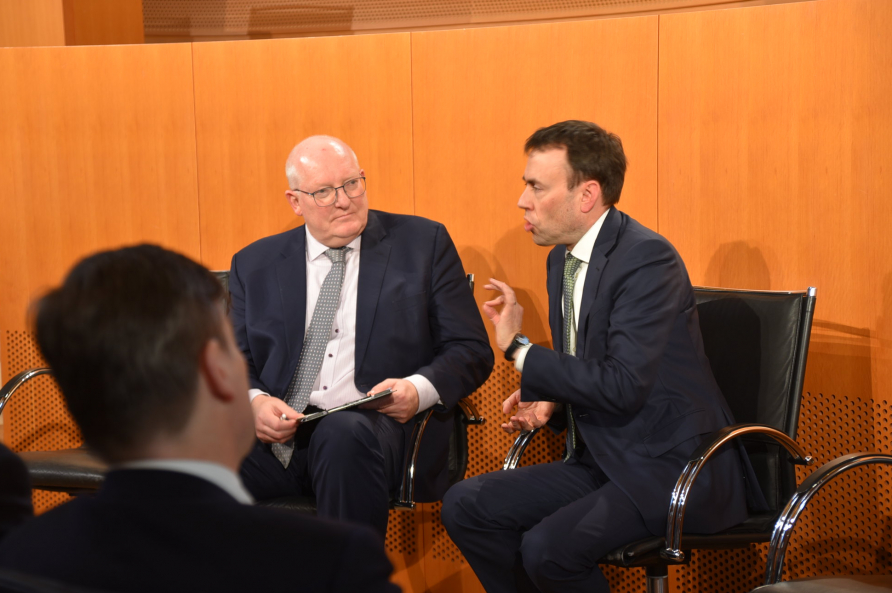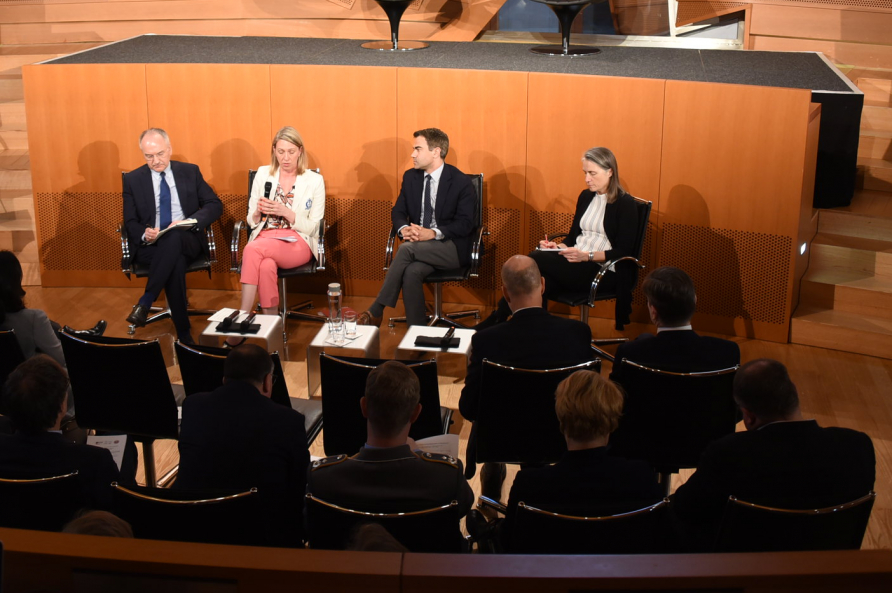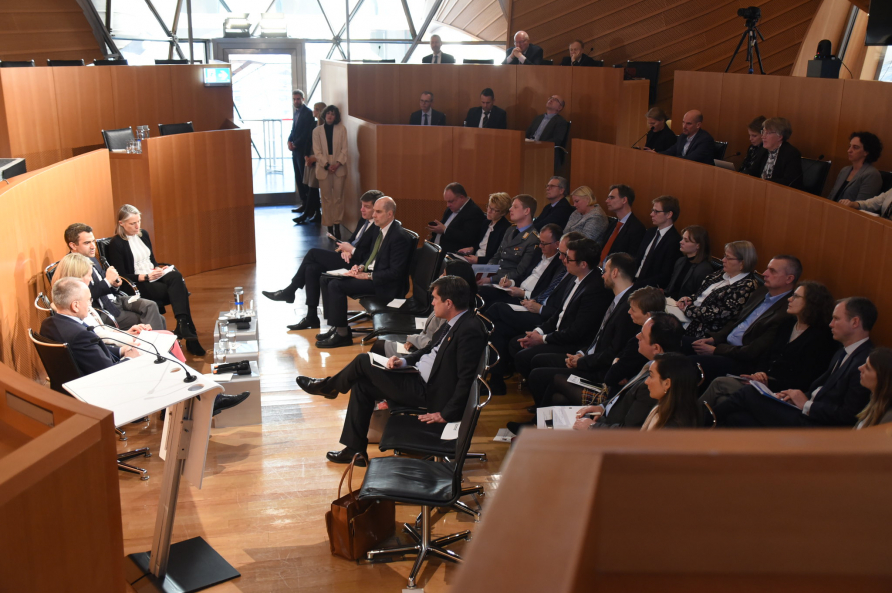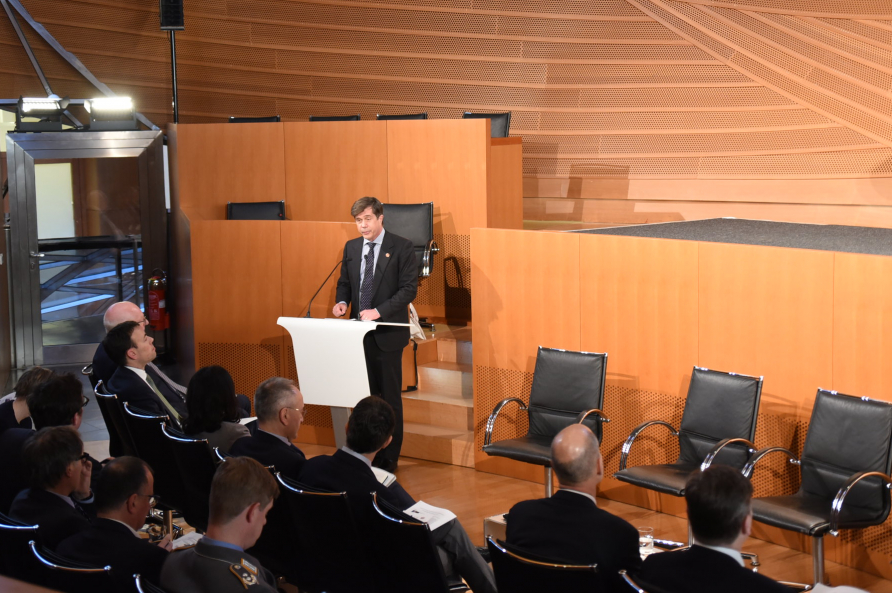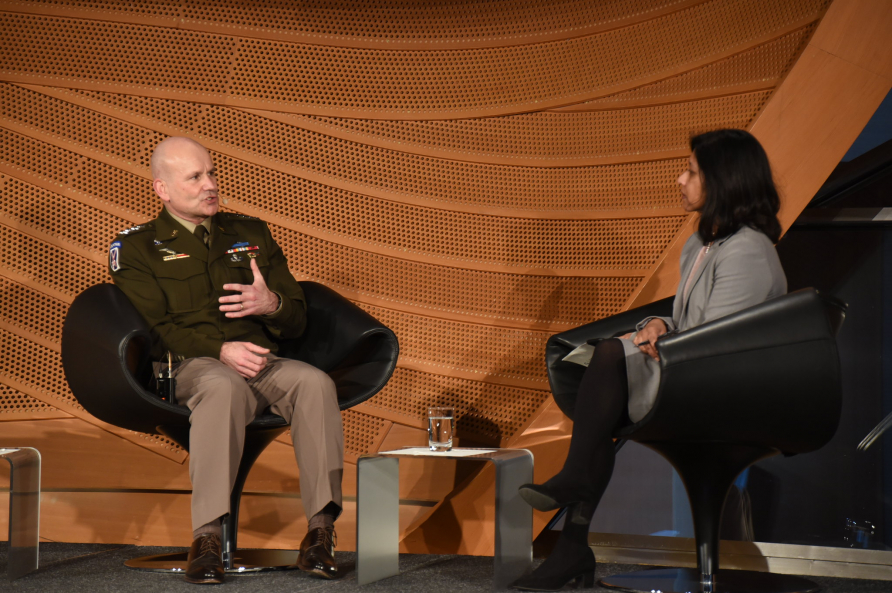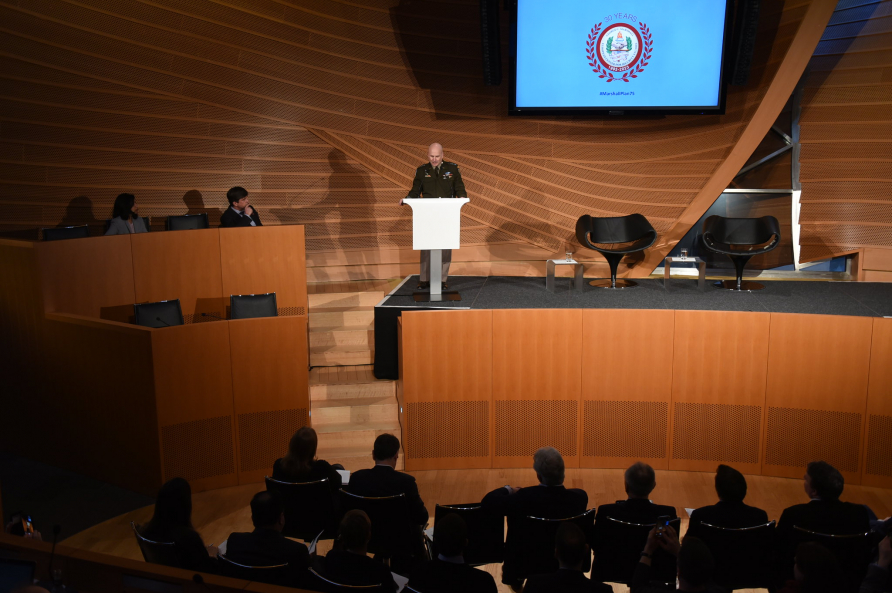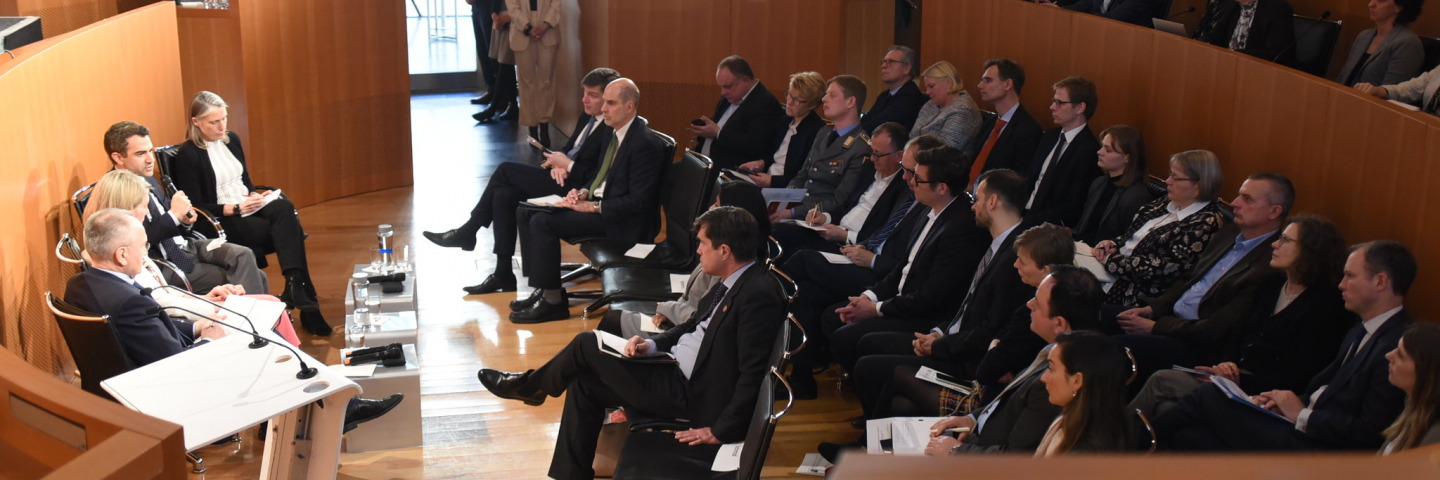
Celebrating 75 Years of the Marshall Plan in Berlin
The George C. Marshall European Center for Security Studies along with the German Marshall Fund of the United States held an event to celebrate the 75th anniversary of the signing of the Marshall Plan in Berlin, March 28.
“75 years ago, George Marshall laid the foundation for success and changed the destiny of European nations after a devastating World War II,” said Marshall Center’s Ambassador-in-Residence Eric Nelson in his remarks. “It was a Zeitenwende of that time.”
The event drew nearly 100 participants using the anniversary to assess how the U.S. and Germany address the challenges of a transformed security landscape, from Russia’s brutal and unprovoked full-scale invasion of Ukraine to the rise of an authoritarian China.
“The Marshall Plan was also the turning point for the vibrant partnership that exists today between the United States and Germany,” Nelson said. The Marshall Center, as a bilateral partnership between the U.S. and Germany, celebrates its 30th anniversary this year, Nelson explained, bringing together future and current world leaders and policy makers from 160 countries to exchange ideas and develop relationships, “much as the Marshall Plan did in the aftermath of Europe devastated by war.”
“As we face a new conflict in Europe, with Russia’s brutal invasion of Ukraine, a strong and unwavering transatlantic alliance is more crucial than ever,” Nelson said.
The event kicked off with a discussion on “The Spirit of the Marshall Plan – Then and Now” by Thomas Kleine-Brockhoff, Guido Goldman Distinguished Scholar, from the German Marshall Fund of the United States and Nils Schmid, Foreign Affairs spokesperson for the Social Democratic Party of Germany.
With panels that included Amb. Tjorven Bellmann, Political Director of the German Federal Foreign Office; Dr. Fiona Hill, Senior Fellow, Center on the United States and Europe Foreign Policy Program at The Brookings Institution; Dr. Stephen Wertheim, Senior Fellow, American Statecraft Program, Carnegie Endowment for International Peace; Prof. Dr. Barry Eichengreen, George C. Pardee & Helen N. Pardee Chair and Distinguished Professor of Economics and Political Science at the University of California, Berkeley; and Prof. Dr. Veronika Grimm, Advisor, German Council of Economic Experts, Professor of Economic Theory at Friedrich-Alexander-Universität Erlangen-Nürnberg; policy makers, Parliamentarians and military alike joined in the discussion on the Marshall Plan, past and present.
Later in the evening, Gen. Christopher Cavoli, Supreme Allied Commander Europe and Commander of the U.S. European Command, gave the keynote speech followed by question and answers with Sudha David-Wilp, Senior Transatlantic Fellow and Regional Director of The German Marshall Fund of the United States.
In his speech, Cavoli talked about the U.S.-Europe relationship over the last century with its complexities of wars that ravaged countries.
“Over the years of the cold war we figured out that relationship – deterrence, and we worked on it together,” Cavoli said. “We became family. And then the invasion of Ukraine happened, upending our assumptions about security, about the world…challenging our understanding of collective security.”
“It is through Europe’s unity that we were able to respond,” Cavoli said. “The transatlantic relationship at its best.”
“At some point, we don’t know when, this war will be over and we will meet to help Ukraine stand back up on their feet,” he said. “And it will be Europe and the U.S., the transatlantic bond, that will do it… it will fulfill the destiny of your namesake, George C. Marshall, whose vision, whose courage, made possible the original Marshall Plan. The plan that rebuilt an entire continent, that created the modern world that you and I have lived in. That took two countries, enemies of one another in two wars, and made them not just friends or partners, but allies. Amazing. But it can be done again with the right spirit and with a sense of history, a sense of purpose and a sense of optimism. We can do this.”
